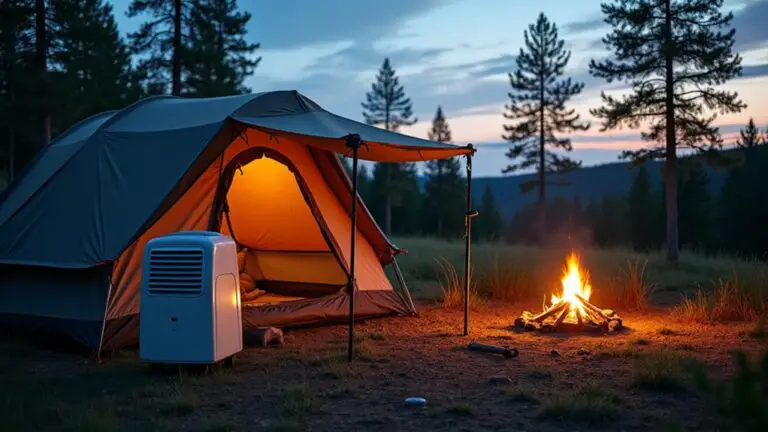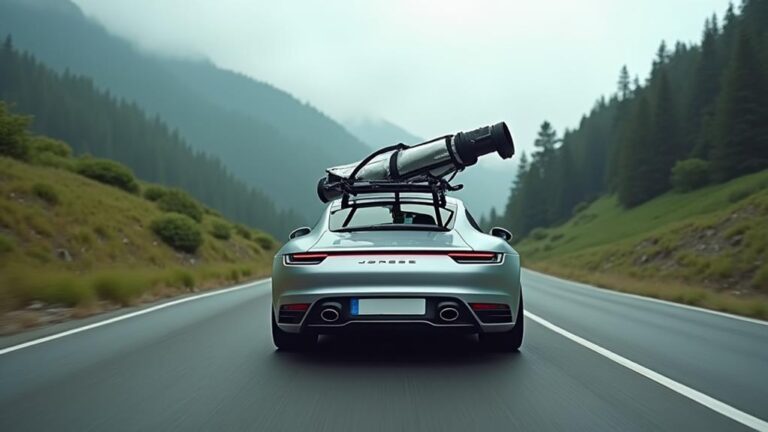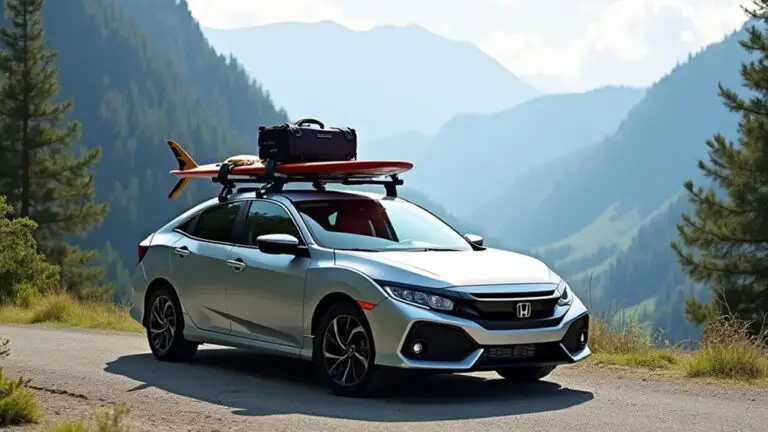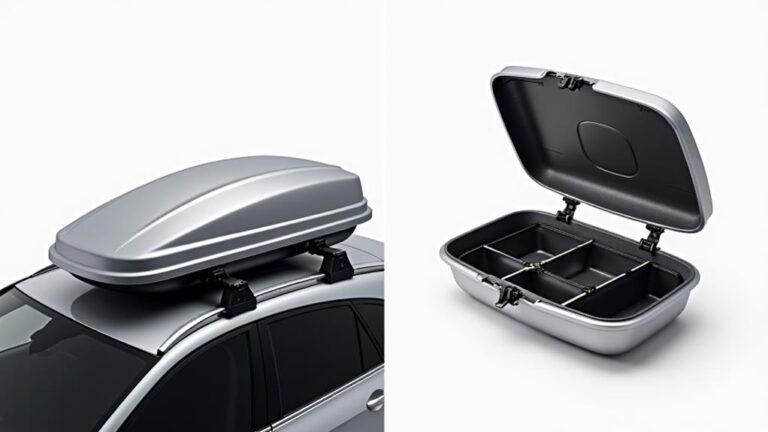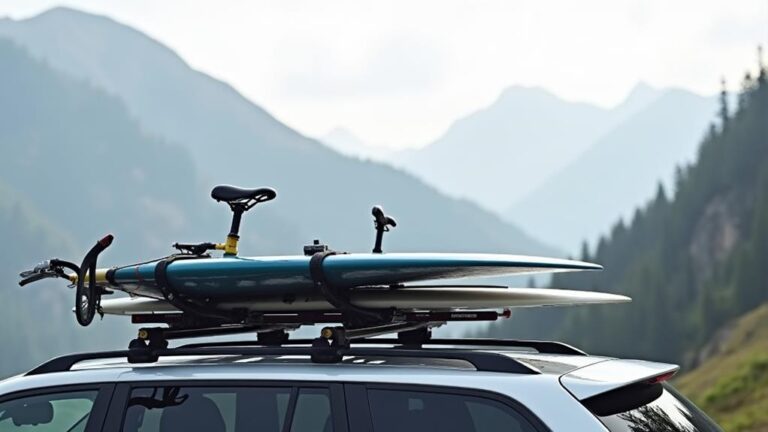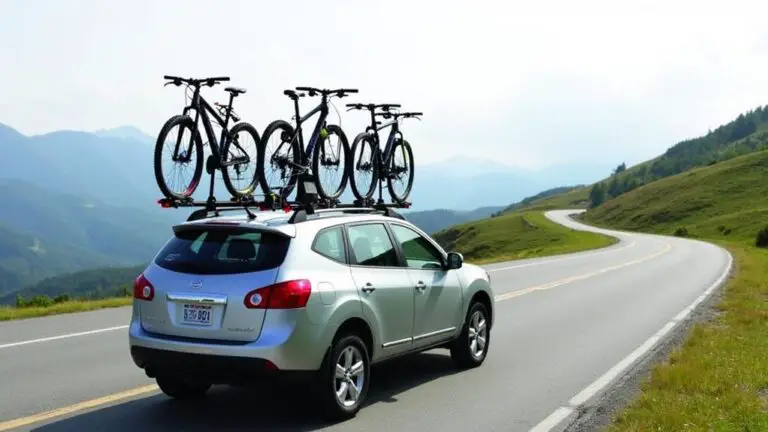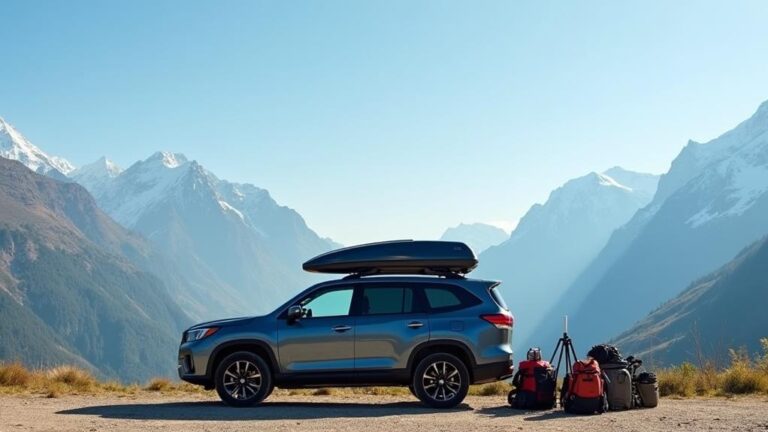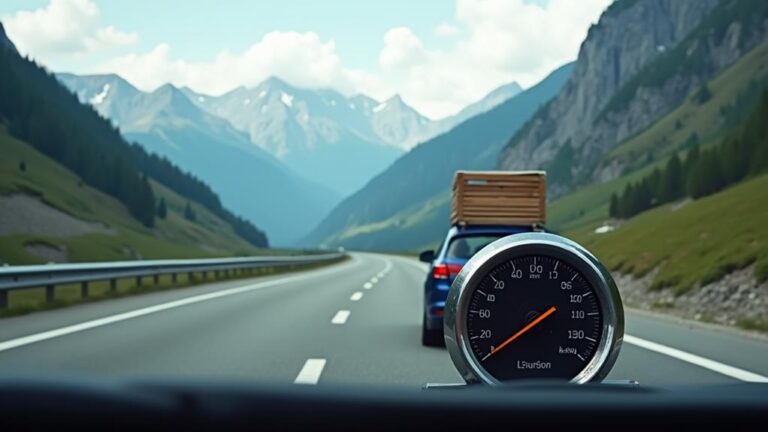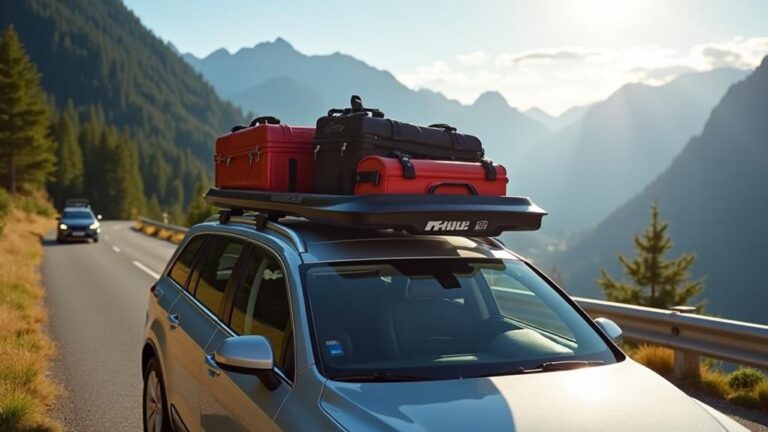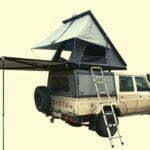When it comes to choosing the best tent air conditioner for your camping needs, you'll want to weigh several key factors. You'll need a unit that can effectively cool your tent while also being mindful of power consumption and energy efficiency. Some top models, such as the Coleman Mach 3 and Whynter 08B, offer a balance between performance and eco-friendliness. But what sets these models apart from others on the market? And which features are must-haves for a comfortable and sustainable camping experience? Let's take a closer look at the top contenders to find out.
Key Takeaways
- Consider the size of your tent and choose a portable AC unit with a suitable cooling capacity and high BTU rating.
- Opt for energy-efficient models with low power consumption to minimize electricity costs and prolong battery life.
- Look for additional features such as built-in fans, dehumidifiers, and rechargeable batteries in portable AC units.
- Solar-powered AC units are a great option for camping in areas with limited access to electricity, offering eco-friendly and portable cooling.
- Weigh the cooling capacity and power consumption when choosing the right tent air conditioner, considering factors like noise level and durability.
Top Portable AC Units
When it comes to tent air conditioners, you'll likely want to ponder portable units that can easily fit in your tent and provide efficient cooling.
These compact designs cater to camping comforts and guarantee you stay relaxed during your outdoor adventure.
When choosing a portable AC unit, consider the size of your tent and the cooling capacity required.
Look for units with a high BTU rating, typically ranging from 2,000 to 10,000, depending on your needs. Some popular models include the Zero Breeze Mark II, which offers a 2,300 BTU rating, and the Alpicool C20, with a 2,000 BTU rating.
Another essential factor is the unit's power consumption, as you'll likely be relying on batteries or a portable generator.
Opt for energy-efficient models with low power consumption to minimize electricity costs and prolong battery life. Some portable AC units also come with additional features such as built-in fans, dehumidifiers, and rechargeable batteries, which can enhance your camping experience.
Best Electric Tent Coolers
As you plan your camping trip, consider turning to electric tent coolers for a more practical solution to beat the heat.
Electric tent coolers are compact, easy to use, and provide an efficient way to cool down your tent. They work by using a water-soaked cooling pad or a mixture of water and ice to cool the air, which is then circulated by a fan.
When choosing an electric tent cooler, consider its Cooling Capacity, which is usually measured in British Thermal Units (BTUs). A higher BTU rating means the cooler can handle larger tents or warmer temperatures.
You should also check the Power Consumption, as this will impact your energy bills and the type of power source you need. Look for a cooler with a low power consumption to minimize your energy costs.
Some popular electric tent coolers include evaporative coolers and misting coolers. Evaporative coolers use a wet pad to cool the air, while misting coolers spray a fine mist to lower the temperature.
Both types are effective, but evaporative coolers are generally more energy-efficient.
Solar Powered AC Options
If you're looking for a more eco-friendly and portable option to cool your tent, consider solar-powered AC units.
These innovative air conditioners harness the power of the sun, allowing you to stay cool in the great outdoors without harming the environment.
To operate a solar-powered AC unit, you'll need a set of solar panels to generate electricity and a battery to store excess energy for nighttime use.
When choosing a solar-powered AC, consider the following key factors:
- Solar panel efficiency: Look for panels with high efficiency ratings to maximize energy generation.
- Battery capacity: Choose a battery with sufficient capacity to power your AC unit throughout the night.
- AC unit size: Select an AC unit that's large enough to cool your tent, but not so large that it's inefficient.
- Portable generators: Consider a portable generator as a backup power source for cloudy days or extended trips.
- System weight and portability: Opt for a system that's lightweight and easy to transport, making it ideal for camping trips.
Tent Air Conditioner Reviews
Your search for the perfect tent air conditioner ends with in-depth reviews of top models.
When choosing the right one, weigh the cooling capacity and power consumption. For example, the Coleman Mach 3 model boasts a high cooling capacity of 13,500 BTU, making it ideal for larger tents. However, it consumes more power at 14.5 amps.
On the other hand, the Whynter 08B offers a lower cooling capacity of 8,000 BTU, but is more energy-friendly with a power consumption of 7.3 amps.
Another model to ponder is the LG LP0815WSR, which strikes a balance between cooling capacity and power consumption. It offers 8,000 BTU of cooling power and consumes 7.2 amps of electricity.
When reviewing these models, weigh factors such as noise level, portability, and durability. Some models, like the Honeywell HL14CESWK, come with additional features like a built-in dehumidifier and a remote control.
When reading reviews, look for information on the unit's performance in high temperatures and its ability to cool a tent quickly. By comparing the features and specifications of different models, you can make an informed decision and choose the best tent air conditioner for your needs.
Most Energy Efficient Models
Instead of focusing solely on cooling capacity, you may want to ponder tent air conditioners that prioritize energy efficiency, especially if you're planning extended camping trips or have limited power sources.
These models are designed to conserve energy while providing a comfortable temperature inside your tent. Look for eco-friendly designs that use energy-efficient technologies, such as inverter motors and solar-powered systems.
When shopping for energy-efficient tent air conditioners, consider the following features:
- Low power consumption: Look for models that use less than 100 watts of power to minimize energy consumption.
- Energy-saving modes: Some models come with energy-saving modes that reduce power consumption during idle periods.
- Whisper quiet operation: Energy-efficient models often feature quiet operation, making them ideal for camping in noise-restricted areas.
- High-efficiency compressors: Compressors with high efficiency ratings can help reduce energy consumption while maintaining cooling performance.
- Solar-powered options: Solar-powered tent air conditioners are a great option for camping in areas with limited access to electricity.
Frequently Asked Questions
Are Tent Air Conditioners Suitable for Humid Environments?
When camping in humid environments, you'll want an air conditioner that doesn't just cool, but also controls moisture. Look for models with dehumidifying effects, as they'll help with moisture control, keeping your tent dry and comfortable.
Can Tent Air Conditioners Be Used Indoors as Well?
You can definitely use portable air conditioners indoors for home usage, and they're ideal for indoor cooling, especially in small spaces or areas where installing a traditional AC isn't feasible or cost-effective.
How Often Should I Clean the Air Conditioner's Filter?
Imagine a garden, where a clogged filter is like a weed-choked path, hindering growth. Clean the air conditioner's filter every 1-3 months to guarantee peak airflow optimization and maintain proper filter maintenance.
Are There Any Health Risks Associated With Using Tent ACS?
You're likely aware that air conditioners can harbor allergens and bacteria. When using any AC, you risk allergic reactions and respiratory issues if the unit isn't properly maintained and the air is stale or contaminated.
Can I Use a Tent Air Conditioner in Freezing Temperatures?
When it comes to using ACs in freezing temperatures, "an ounce of prevention is worth a pound of cure." You'll want to check if your unit has cold performance and frost protection features to guarantee it operates safely and efficiently.
Conclusion
As you pack up your eco-friendly tent air conditioner, the sun's rays start to set on another day of camping. Coincidentally, you notice the cooler air and reduced energy consumption matching your sustainable goals. With top models like the Coleman Mach 3 and Whynter 08B, you've found the perfect balance between performance and energy conservation. Your camping experience is now more comfortable and environmentally friendly, a perfect match for the serene outdoors.
